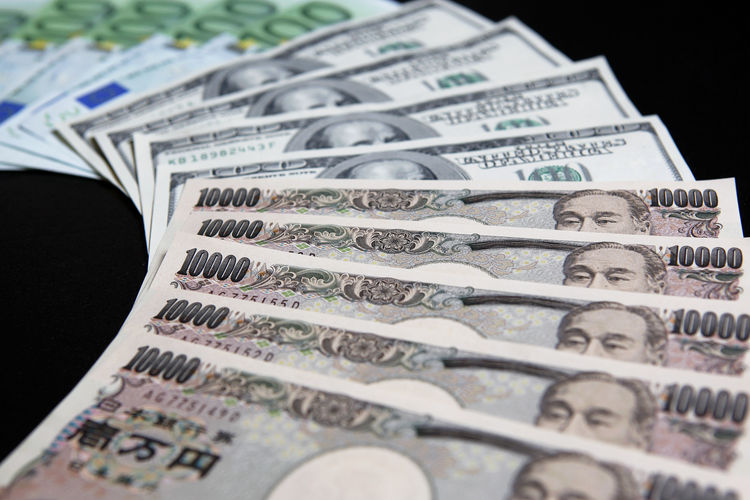- Bridging the Gap Between Official/Parallel Market Rates
Gwadabe urged the directors to help CBN reduce the gap between the official and parallel market rates. “As a Nigeria, anytime I see the gap increasing, I become concerned. These gaps are created by currency speculators’ compromise. Speculators are the biggest challenge facing the naira,” he said.
He said BDCs are better positioned in networking, convenient and more effective than the conventional banks in the elimination of rates disparity.
Highlighting the dangers of speculation, he said any money made through such practices will not help the economy. “Speculation creates inflation, and the funds made through illegal means will also be spent on the problems they have created. Anytime the naira weakens, the economy suffers and there will be job losses and rise in crime rate,” he said.
Continuing, he said: “ABCON will continue to update all directors on CBN’s and other regulatory agencies’ forex sale requirements. We have a duty to reverse the negative perception many stakeholders’ have on our operations by complying with regulatory guidelines”.
Gwadabe said the BDCs are in the watch list of the International Monetary Fund (IMF), World Bank and United States of America because of the critical role they play in economies of nations. He cited cases where the BDC operators, had in the past, helped the CBN to strengthen the naira.
“We saw the naira appreciate from N520/$ in late January to about N380/$ after the CBN resumed sale of forex to BDCs. That was what everyone needed to know that BDCs have major role to play in naira’s stability. We have chosen to support the CBN and be part of the positive story surrounding the naira. We are happy that our contributions are paying off,” he said.
According to him, fall in crude oil prices and exit of foreign investors, triggered drop in dollar inflows and adversely affected naira’s value.
Also, the South-west Zonal Chairman, ABCON, Taiwo Ebenezer, said BDC operators are willing and ready to get information that will improve their business and economy.
He said the overall interest of BDCs is to improve the status of the naira, because the decline in value of the naira leads to higher inflation.
Ebenezer however, urged the CBN to take steps that will ensure that only BDCs sell Personal Travel Allowances (PTAs) and Business Travel Allowances (BTAs). He said: “If the BTAs, PTAs, and tuition are left in the hands of BDCs, we will be held responsible for any abuse. But today, BDCs are not the only players in the market as the banks also operate.
It is important to leave this segment of the forex market entirely for BDCs,” he advised.
One of the BDC operators, Folashade Adebayo, said all operators should unite against the forex speculators.
“The speculators are giving us bad name and killing the naira. Let’s unite and chase them out of the market and save the naira. The challenge is how do we ensure that when speculators buy from us, they do not go to the back and sell to parallel market operators? We must devise means to stop them before they stop us,” she added.
Another BDC operator, Tony Emeka, praised ABCON leadership under Gwadabe for constructively engaging the CBN and helping to raise weekly allocations from $8,000 to $20,000 even as the volume is expected to hit $40,000 in the coming weeks.
“It is not a simple task. ABCON has made us proud, and we have confidence in this leadership. We also want ABCON to engage CBN to review transaction margin. We need more dollar allocations from the CBN to force rates down,” he said.
Gwadabe called on security agencies to curb illegal currency transactions at Nigerian borders to strengthen the naira adding that recent surveillance of the nation’s boarders by combined teams of security agencies helped to cut frivolous demand for the dollar by 80 per cent.
Gwadabe praised CBN for the unveiling Small and Medium Enterprises (SMEs) Forex Window.
The acting Director, Corporate Communications, CBN, Mr. Isaac Okorafor recently said the new window for SMEs provides small scale importers an avenue to source forex to boost their respective businesses through the importation of eligible finished and semi-finished items. He, however, restated that no SME will be allowed to transact more than $20,000 per quarter.
Equally, other representatives of the CBN, DSS, and Police agreed that there was need for all stakeholders to stop forex speculators from destroying the naira.


 Forex4 weeks ago
Forex4 weeks ago
 Naira3 weeks ago
Naira3 weeks ago
 Billionaire Watch3 weeks ago
Billionaire Watch3 weeks ago



 Naira4 weeks ago
Naira4 weeks ago






 Naira3 weeks ago
Naira3 weeks ago


 Naira2 weeks ago
Naira2 weeks ago






 Naira2 weeks ago
Naira2 weeks ago


 Naira2 weeks ago
Naira2 weeks ago





















